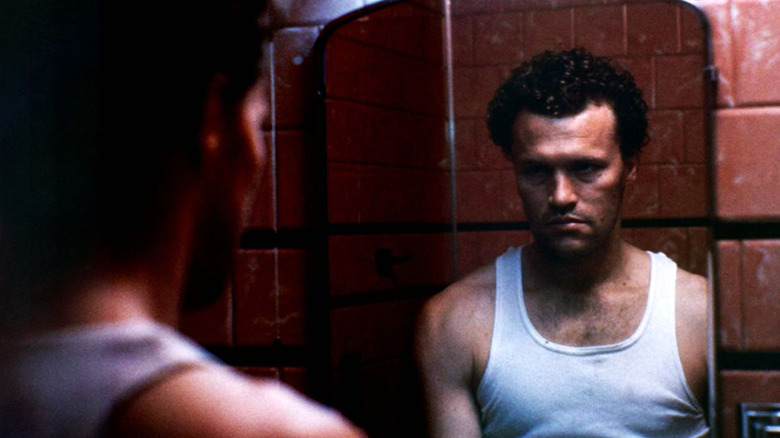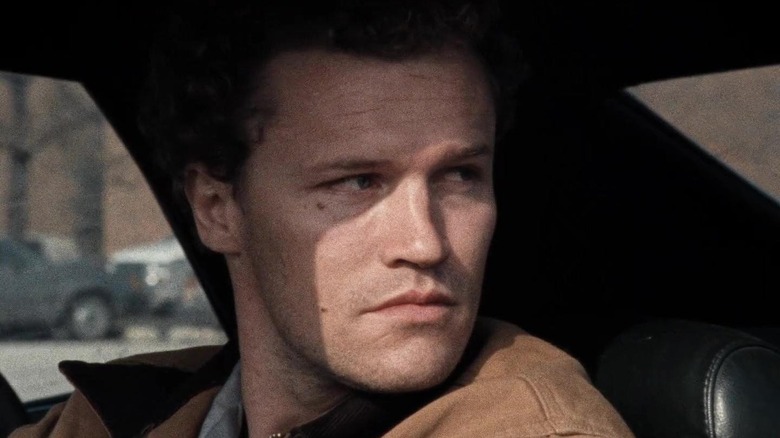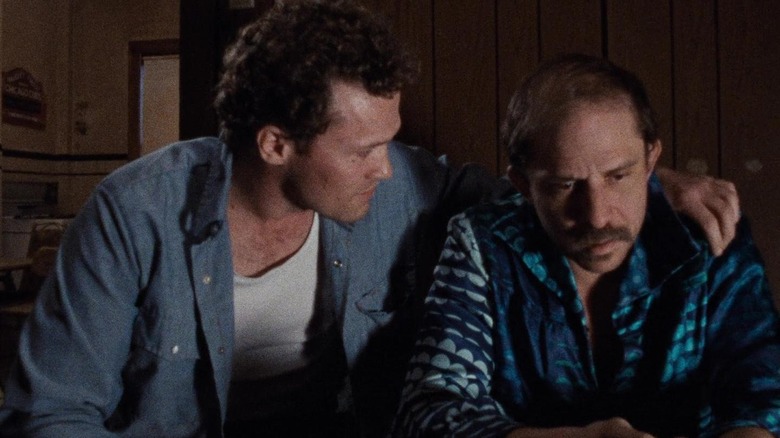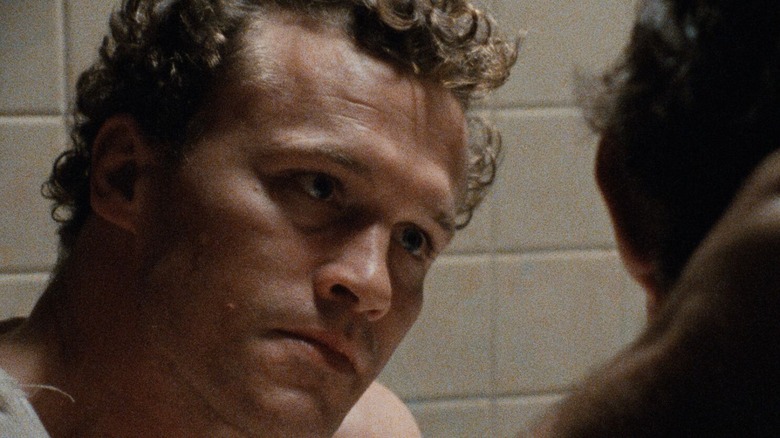A Moment Of 'Destiny' Led To The Creation Of Henry: Portrait Of A Serial Killer
There are few movies quite like "Henry: Portrait of a Serial Killer." It's a grim, gruesome horror film loosely based on the real-life serial killers Henry Lee Lucas and Otis Toole. The movie was given an X rating upon its release in 1986 for its intense, unrelenting violence, but it managed to become a cult classic on VHS. The film would introduce the world to filmmaker John McNaughton and lead actor Michael Rooker, but it would also help inspire an entire generation of horror filmmakers. Along with other grimy horror movies like the 1980 film "Maniac," "Henry" served as a response to the supernatural silliness of many of the decade's popular slasher franchises. It is a brutal, stomach-churning experience that almost feels like it's obscene, like you shouldn't be watching it.
In an interview with RogerEbert.com to celebrate the film's 30th anniversary in 2016, McNaughton was asked about the origins of this disturbing bit of cinema. It turns out that the whole situation was somewhat serendipitous, and "Henry" happened almost by happenstance.
Here's $100k, make a horror movie
McNaughton explained that the creation of "Henry: Portrait of a Serial Killer" happened by means of destiny. He went in to meet with a former associate, producer Waleed Ali, with whom he made a documentary called "Dealers in Death," and Ali presented him with a proposition:
"I had gone in to see Waleed about doing another documentary and something happened—some confusion and a switching of monies asked for—so they decided not to do it. On that particular day, Waleed said 'Remember that dream we had, John, that we would one day make a movie? I'll give you $100,000 to make a horror film,' because they could sell a horror film at that time."
While that wasn't exactly the offer of a documentary that McNaughton had originally hoped for, being offered 100 grand to make a horror movie is a pretty great situation to find yourself in. Horror, especially low-budget horror, was huge in the mid-1980s, so it's not a big surprise that Ali was interested in banking on the genre's popularity. McNaughton was generally more of a documentary filmmaker, but he knew just who to talk to for ideas.
A guy named Gus
While McNaughton wasn't sure about the direction to take his new film in, he had an old friend nearby who knew plenty about the macabre:
"I left the office and down the hall was an old friend of mine who was always into weird stuff and who had an office there—he collected weird stuff for them and they would figure out how to make money off of it. I said 'Gus, Waleed just gave me $100,000 to make a horror film.' He asked what I was going to do and I told him I had no idea."
Gus had a great idea, however, and he put in a VHS tape of a "20/20" segment on serial killer Henry Lee Lucas. It was the first time McNaughton ever heard the term "serial killer," which had only been coined a few years earlier by the FBI, and he was fascinated with the idea. Lucas was a shocking story because he had confessed to somewhere around 600 murders during his lifetime, though he was only originally convicted of three murders.
McNaughton drew from the true story of Lucas and his friend and fellow serial killer Otis Toole, though certain elements were dramatized or changed. Some of these changes were in service of making a better horror film, while others were a matter of necessity because the reality of some of the story was just too grim. (For example, Henry's "love interest" was aged up significantly, because in real life he became obsessed with her when she was only 10 years old.) In the end, "Henry: Portrait of a Serial Killer" is one of the most harrowing horror films ever made, even if it's not exactly "true" crime.
A matter of fate
When it came to casting, McNaughton felt like certain things were predestined as well. When he first saw actor Michael Rooker, then a relative unknown, he knew that he had found his lead:
"Certain things are destiny, like when he [pointing at Michael] showed up at the door for his first audition—I opened the door and thought "Henry's here." It was not a process of sifting through ideas and going through things that I had thought of over the years. When I left the building that day, there was a 7-11 down the street and I went there and bought some lottery tickets because I figured this was my lucky day."
McNaughton and Rooker both ended up having serious Hollywood careers, with McNaughton going on to direct episodes of "Homicide: Life on the Street" and numerous movies, including the salacious thriller "Wild Things." Rooker skyrocketed to fame as Merle Dixon on "The Walking Dead" and broke everyone's hearts as the big blue daddy Yondu in James Gunn's "Guardians of the Galaxy" films. Without the stroke of fate that got "Henry: Portrait of a Serial Killer" put into production and kicked off their careers, these two greats might have taken a lot longer to be discovered.



